|
Rogue Remakes
I was utterly depressed to learn that one of my favourite films, The Magnificent Seven, has been remade – or is that ‘rebooted’? – as one should never mess with the classics, even if it was itself a remake of the Japanese classic Seven Samurai.


The beauty of John Sturges’ 1960 film was, apart from some wonderful performances by all involved (especially Eli Wallach) most of its highly quotable dialogue could have been taken from a 1940’s film noir. It also gave rise to the after-dinner parlour game (OK then, pub quiz) of ‘Can you name the Magnificent Seven in the order they were shot?’
With its fantastically memorable score (although one ‘well known’ crime writer misidentified it as the theme from The Big Country on an episode of Pointless recently), it deserves its place in the Pantheon of Great Westerns. I doubt if the new version will reach anywhere near such heights, but have no intention of finding out as I refuse to use my two-for-one tickets from those nice Meerkat people on going to see it on the grounds that, like the re-make of True Grit, it was entirely unnecessary. (Oh very well, then, I admit that Matt Damon was better than Glen Campbell.)
It is not that I am against cinematic re-treads as such. In fact I am positively looking forward to one, the announced third version of Rogue Male, based on Geoffrey Household’s classic 1939 novel.
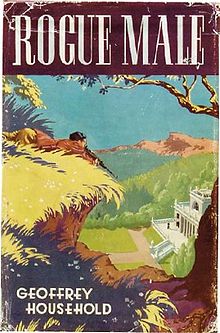
The first version, made in 1941 when Household was serving in the British army in the Middle East, was a wartime morale booster by Fritz Lang titled Man Hunt and I cherish my DVD edition which was a present from no less a personage than Professor Barry Forshaw.
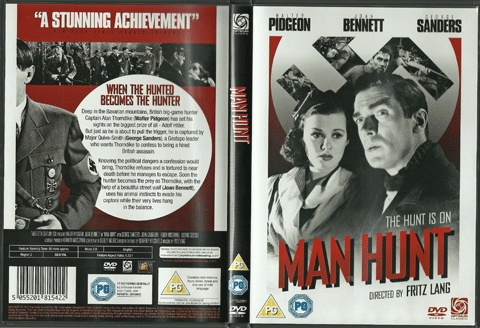
Then there was the little seen (i.e. never repeated due to contractual disputes) BBC television remake as Rogue Male in 1977 starring Peter O’Toole as the hero ‘Sir Robert Hunter’.
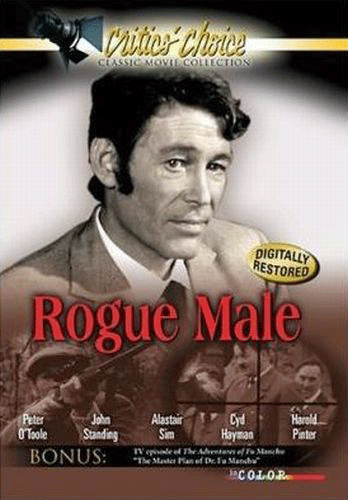
Now comes news that a third version is in the pipeline, starring Benedict Cumberbatch who will surely give the definitive performance as the Rogue Male of the title, though I only hope they give his character his correct name this time.
To be fair to the film-makers, the protagonist of Geoffrey Household’s story was anonymous and so in the 1941 film he became ‘Captain Alan Thorndike’ as he had to have a name (on the same principle as ‘Harry Palmer’ in The Ipcress File) and then in 1977, ‘Sir Robert Hunter’. It was not until 1982 that Household, in the long-awaited sequel Rogue Justice, revealed that his hero’s name was actually Raymond Ingelram.
Now there’s a pub quiz question for you.
No Way To Treat A Fan
My old pal Len Deighton has always said that the two most dangerous things for a writer were alcohol and praise. Having enjoyed a sufficiency of one and a nugatory amount of the other, I naturally take every opportunity to meet anyone who may have mistakenly represented themselves as a ‘fan’.
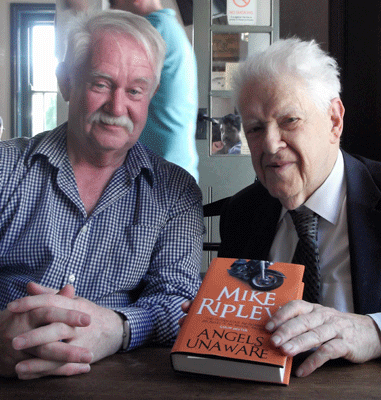
Earlier this year, New York-based Professor Neil McKelvie – a chess master and concert pianist as well as a noted chemist – foolishly let it be known that he had enjoyed my ‘Mr Campion’ continuation novels featuring Margery Allingham’s wonderful detective hero. Furthermore, he had made a special point of acquiring the latest, Mr Campion’s Fault, several months before it was published in America. (Which incidentally, is this month.)
So impressed was I with such dedication that when I heard that Professor McKelvie intended to make a flying visit to his alma mater, Queen’s College, Cambridge, I simply had to waylay him and – in a piece of shameless self-promotion – press upon him one of my ‘Angel’ books.
It is always good to be back in Cambridge, however briefly, and to be reminded what a beautiful college Queens is; I would rate it second only to St Ignatius although I naturally have a soft spot for my own alma mater, Michaelhouse College with its motto Panem angelorum manducavit homo. I am sure that a translation is unnecessary for the majority of my regular readers but for the very young (and those who voted Brexit), it is of course: Man hath eaten the bread of Angels.
The Borneman Identity
Another classic crime novel which everyone should have read but few probably have is The Face on the Cutting-Room Floor by ‘Cameron McCabe’, first published in 1937 but now splendidly reissued as a Picador Classic with an introduction by Jonathan Coe.
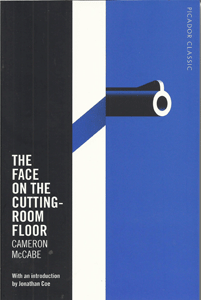
Often described, nowadays, as the first post-modernist detective story, for many years there was a considerable mystery over who the author, ‘Cameron McCabe’ actually was, although Julian Symons, in Bloody Murder in 1972, identified him as Ernest Borneman, a man whose life story reads like the synopsis of a Robert Ludlum novel.
Born in Berlin in 1915 Borneman (then Ernst Bornemann) was a communist and dedicated jazz fan and musician, who fled to England when the Nazis took power in 1933. Whilst still a teenager, he learned English and wrote The Face on the Cutting-Room Floor. Deported (as an “enemy alien”) to Canada during the war, he later worked in film and television (with Orson Welles among others) before becoming an academic and a leading sexologist in Germany. He is thought to have committed suicide, aged 80, after a failed relationship with a younger colleague.
Julian Symons described McCabe’s novel as ‘The detective story to end detective stories’ and a ‘dazzling, and perhaps fortunately unrepeatable, box of tricks.’
The Thynne of It
Dean Street Press have been doing a splendid archaeological work on the so-called ‘Golden Age’ of English detective novel in recent years and have come up with yet another ‘lost Queen of Crime’ in the shape of the aristocratic Mary “Molly” Harriet Thynne (1881-1950).
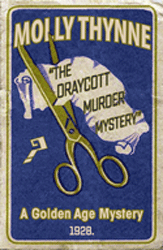 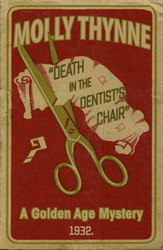
Brought up in privileged comfort (her family related to the Marquis of Bath), Molly Thynne wrote six detective novels between 1928 and 1933 beginning with The Draycott Murder Mystery (no, me neither) although I am reliably informed that the best of her half-dozen output is Death in the Dentist’s Chair (again, me neither) from 1932.
Anyway, don’t take my word for anything, as Dean Street is republishing all six this month.
|
|
Auguries
It is well-known that I have a terrible reputation when it comes to making predictions, having been proved famously wrong on the Brexit vote, Leicester City (though not Aston Villa) and (hopefully) on Donald Trump. However I am confident I can predict the Number One bestsellers for both October and November without the need to sacrifice any animals or cast a single rune.
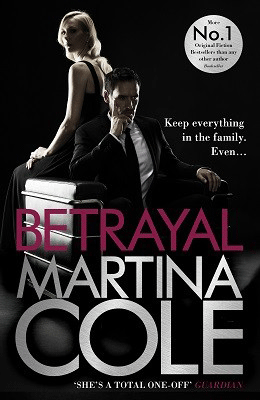
Martina Cole is said to have had more #1 Bestsellers than any other author and I am confident that her twenty-third novel will join that hit list. Betrayal is published by Headline on 20th October and I predict will be a number one bestseller by, say, 5 o’clock that evening.
I have been granted a sneak preview and encourage fans to watch out – about half-way through – for a wonderfully foul-mouthed discussion around the ‘family’ table of the merits of famous gangster films with, I think, Scarface coming out ahead of Goodfellas, Godfather and The Long Good Friday.
My second utterly confident predication is that the book most likely to knock Betrayal off the top spot in November will be Lee Child’s new Jack Reacher thriller Night School, from Bantam.
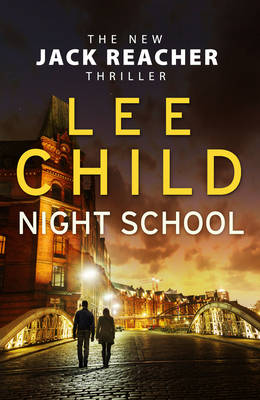
This will be the 21st Reacher novel and I am told that somewhere in the world someone buys a Reacher novel every twenty seconds. (Whereas some of us prefer to know our readers personally…)
In Night School we delve back into Reacher’s army past; it’s 1996 and most of the action takes place in Hamburg as Reacher is seconded to a specialist counter-intelligence unit to foil a terrorist plot – a big terrorist plot.
Once again I have had the privilege of reading an advance copy and it is, as usual, a very exciting thrill-ride. The publisher’s blurb takes great pains to point out that the Reacher novels are ‘The strongest brand in publishing’ and ‘The most commanding brand in fiction’. I am not competent to comment on whether those statements are true, though I would add my own thought that they are certainly the most reliable brand in thriller fiction at the moment.
I do have to take issue with Mr Reacher on one point, however, not that I would ever dare do so in real life. In Night School, Reacher is ‘dissuaded’ from entering a Hamburg bar by four young toughs who don’t like Americans, particularly American soldiers. We know, but they don’t, that this is a mistake and Reacher disables all four with ruthless efficiency. He then goes into the bar and speaks to the ‘grey and stooped’ 70-year-old man behind the counter, who is presumably shaken if not terrified having just seen the Reacher mean machine in action. Reacher has one important question he just cannot resist asking the (so far as we know) innocent barman: ‘How does it feel to lose a war?’
Now that comes across to me as a bit of a low blow and I couldn’t help wondering if Reacher would have said the same if he’d been in a Vietnamese restaurant.
Northern Lights
Can a new Swedish author keep me up all night, as the cover of her new novel promises? At my age, that would certainly be a challenge.
 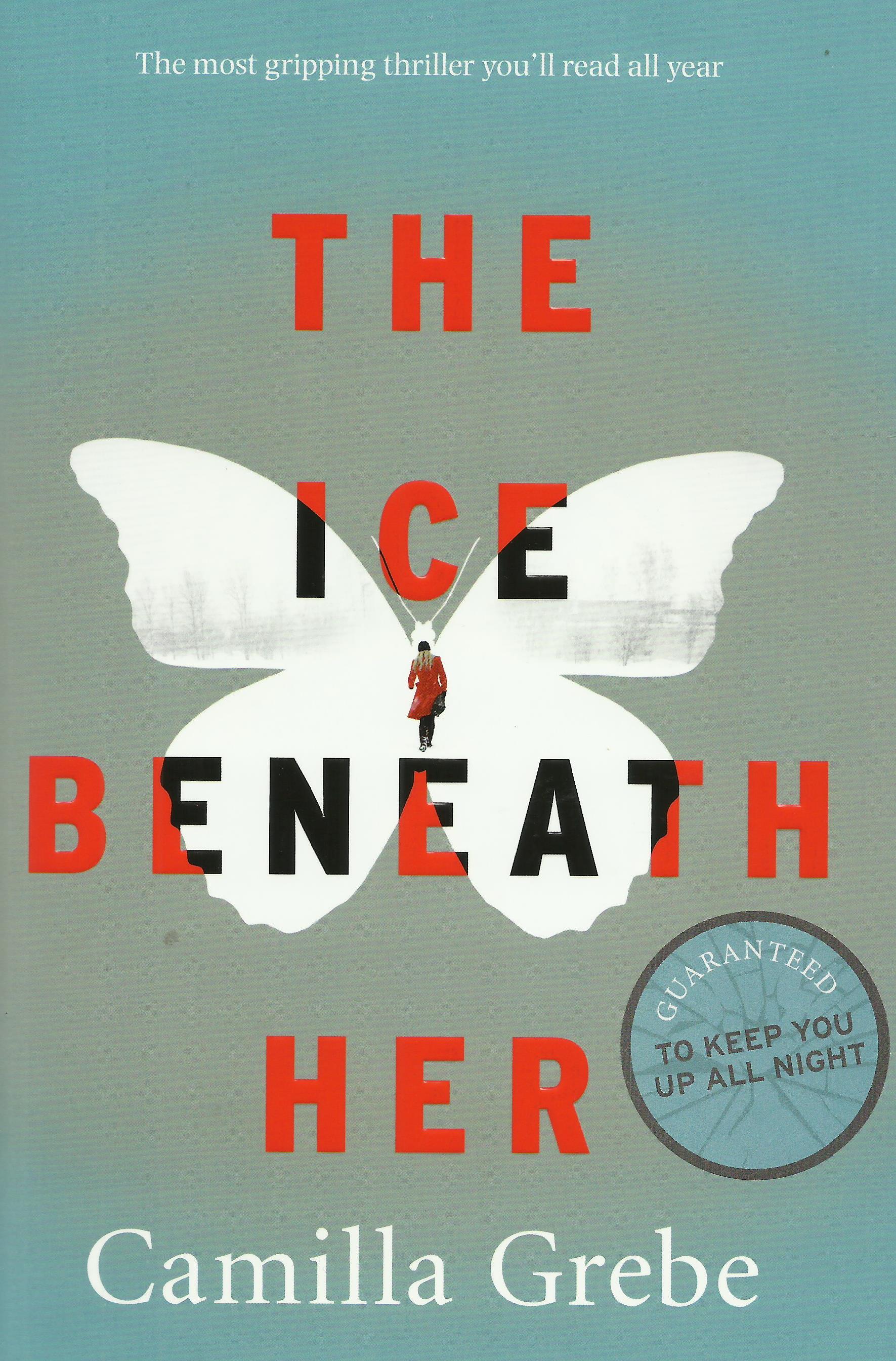
The Ice Beneath Her, published this month by Zaffre, is the first ‘solo’ novel by Camilla Grebe, although she has written numerous crime novels as a co-author with Paul Leander-Engström and also with her sister Asa Träff.
Irish Eyes
Some years ago I was asked by an American magazine if I could come up with a definition of ‘Irish Noir’. It was a time when the term ‘Tartan Noir’ to describe virtually anything Scottish, except perhaps Andy Stewart, was being bandied about. The best I could come up with on the Irish front was simply to say ‘Ken Bruen’ but that is probably because I blame Ken for most things at any given opportunity.
I think the point was that a number of very interesting crime writers were emerging from Ireland at that time and the American magazine wanted a catch-all ‘sub-genre’ to describe them.
Despite my inability to compartmentalise them, I am happy to say that the crime novel set in Ireland is alive and well and two fine examples appear, coincidentally, on the same day this month.
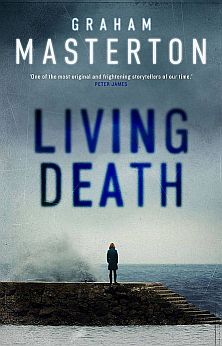
Living Death by Graham Masterton, published by House of Zeus, sees the return of police detective Katie Maguire on her now familiar Cork beat in a series which goes from strength to strength. Masterton, a name long associated (well over 30 novels since 1976) with the horror genre, has turned in recent years to crime novels set in his adopted Ireland.
A new name, at least to me, is Jo Spain, whose second novel is Beneath the Surface, from Quercus.
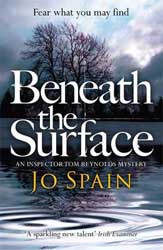
Jo Spain’s debut, With Our Blessing, was chosen as one of the Irish Times’ crime novels of 2015 and a top ten bestseller in Ireland. In Beneath the Surface she reintroduces the police detective from her debut, DI Tom Reynolds, in a case which begins with the murder of a government official in Leinster House, the seat of the Irish parliament. The setting should be accurately described, as I understand that in real life, Jo Spain works there.
Those Bloody Scots
I seem to be mentioning the Bloody Scotland convention, which takes place this month, in every passing column though I have never attended one and am unlikely to ever be invited to one. However, I sat up and took notice when I was told that debut author Les Wood is due to appear there on September 9th.
The reason this news was worth flagging up was that it came in the form of an endorsement for Les Wood’s novel Dark Side of the Moon (published by Freight Books of Glasgow in October) by none other than my old sparring partner Douglas Lindsay, with whom I had the pleasure of being a fellow panellist at this year’s CrimeFest.
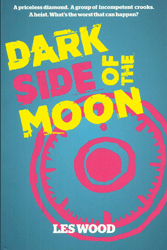
Douglas describes Dark Side of the Moon as ‘No Mean City meets The Italian Job in this hilarious comic noir debut, as the dark underbelly of the city’s crimeland is spewed on to the page. With razor-sharp dialogue, superbly venal characters and a finely-tuned plot.’ And if anyone knows about razor sharp dialogue, it’s Douglas, the creator of that demon barber Barney Thomson.
Apologies and Corrections
(A usually brief section)
I must apologise to my old boulevardier chum Ian Rankin, who is well aware that I have been rather sniffy in the past about writers who allow their musical choices to encroach on their fiction.
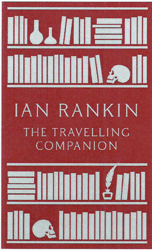
Now I am guilty too, as last month when praising Ian’s new novella (from Head of Zeus) I inadvertently referred to it as The Travelling Man when it is, of course, called The Travelling Companion, which I would have known if only I had looked at the book in front of me. My only excuse is that as I was writing the July column, I was imbibing a toothsome Ezra Brooks bourbon whilst listening to the Seasick Steve track Walking Man from his 2008 album Started Out With Nothing and I Still Got Most Of It Left (Warner Music), and must have got somewhat confused.
Warning Signs
On a recent visit to the Barbican Centre in London I was taken aback to see this sign prominently displayed over the Silk Street entrance.

Was this yet another international conference on ‘Nordic Noir’ – chaired, no doubt, by Professor Barry Forshaw – to which I had not been invited? In a dazed and confused state, I repaired to The Jugged Hare on the corner of Chiswell Street for some of their famous Goat-meat Scotch Eggs and Black Pudding Croquette bar snacks and a schooner of ale from a brewery established at least two years ago.
As a result, I am no wiser as to what Scandinavian Pain was all about but I did realise that I am now so old I could remember The Jugged Hare when it was a proper pub and you got a packet of KP nuts with your Light and Bitter. If you were lucky.
Cheers!
The Ripster.
|